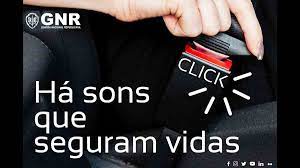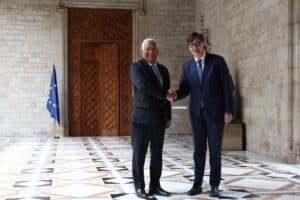António Costa has said future executive role ‘not on his horizon’
Portugal’s caretaker prime minister, António Costa, is taking part in a dinner debate this evening on the European Union’s (EU) Strategic Agenda organised by president of the European Council, Charles Michel, in preparation for the next EU institutional cycle after next year’s European elections.
Says Lusa, António Costa will take part in what is the second dinner debate organised by Charles Michel on the EU’s political priorities for the future, in the context of the European Parliament elections in June 2024 and ahead of the appointment of the next European Commission, after the European leader began last week consulting the Union’s heads of government and state on the new Strategic Agenda.
The event is taking place at the Élysée Palace in Paris and is organised by the French presidency.
In addition to António Costa, leaders such as the host French president, Emmanuel Macron, the prime minister of Estonia, Kaja Kallas, the new prime minister of Slovakia, Robert Fico, the also newly-elected prime minister of Luxembourg, Luc Frieden, as well as the outgoing prime minister of the Netherlands, Mark Rutte, will be present.
The first dinner on the EU’s new Strategic Agenda took place last Monday in Berlin, with the German chancellor, Olaf Scholz, who promoted the event, the Austrian chancellor, Karl Nehammer, as well as the prime ministers of Greece, Kyriakos Mitsotakis, Hungary, Viktor Orbán, and Belgium, Alexander De Croo, and the presidents of Cyprus, Nikos Christodoulides, and Lithuania, Gitanas Nausėda.
That day, Charles Michel shared on the social network X (formerly Twitter) that the occasion would serve to address the EU’s “priorities and objectives” in order to “improve policies to make [the EU bloc] stronger” and to “finance shared priorities”.
These two will be followed by dinners in Copenhagen and Zagreb in the coming weeks with the other European leaders.
In the invitation letter sent to European leaders at the beginning of November, Charles Michel said that the aim was, in “small groups”, to reflect “on the EU’s capacity to act and achieve its objectives” in areas such as security and defence, resilience and competitiveness, energy, migration and the enlargement of the Union.
On the table are issues such as the reforms to be carried out in the EU in the context of future enlargement, strengthening the EU budget given the common priorities and also improving decision-making, debating whether this would involve, for example, more qualified majority voting instead of unanimity.
These initiatives come after the EU heads of government and state defined a general framework for a more resilient Union, both internally and globally, at the Granada European Council at the beginning of October.
On that occasion, António Costa advocated a new institutional architecture for the EU, proposing “a multifunctional building that rests on solid foundations, […] which are the common values”, but in which there are “a number of spaces that everyone uses according to their own will to participate or not participate”.
The idea, according to the outgoing head of government, is to avoid “successive blocking issues”, after Hungary has blocked several European dossiers in recent months.
Budapest is also threatening to veto decisions at the crucial December European Council, where EU leaders will try to reach agreements on issues such as the opening of formal accession negotiations with Ukraine and Moldova, the revision of the multiannual budget until 2027 (with a financial reserve to support Ukraine’s reconstruction of €50 billion), the new migration and asylum pact and the new EU budget rules.
But, what Lusa does not say, is that Mr Costa’s participation suggests he considers there may well be a future political role in his career, in spite of saying very recently that a) he doubted he will have any future “public role”, and b) that no one imagines he has a future “executive role” (ie within national government).
Source material: LUSA




















